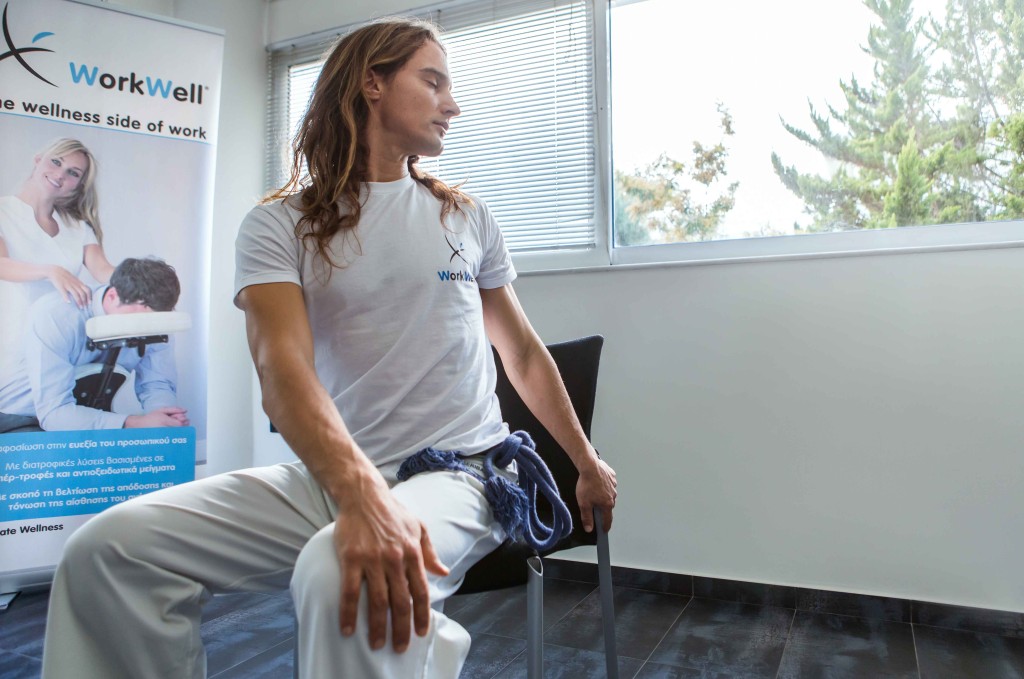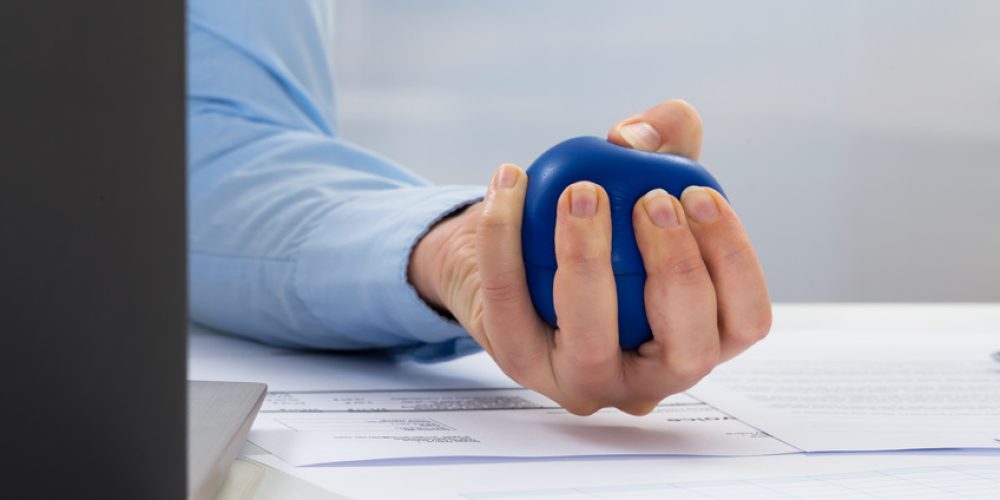Stress can take a serious toll on your mental and physical health if you’re not proactively taking steps to combat its harmful effects. And while practices like yoga and exercise are good long-term strategies for stress reduction, there are times where you need immediate relief from distress.
Workplace stress relievers are helpful for difficult days, and exercises you can perform at your desk can be a lifesaver. High stress levels and spikes in anxiety impair concentration and creativity. Relaxing for a few minutes before you make that sales call, or calming yourself down before you give an important presentation, could be key to peak performance.
Here are five quick stress relievers you can do at your desk:
1. Progressive Muscle Relaxation
Stress can cause you to tense certain muscles in your body. Over time, you may become so accustomed to that tension that you stop noticing that your muscles are tight. Sore muscles – especially in the neck and shoulders – can stem from chronic tension. Progressive muscle relaxation lets go of that tension.
Focus on slowly tensing and then relaxing your muscles, one group at a time. Start with your toes and work your way up to your neck. With practice, you’ll increase your awareness of when you’re tensing your muscles and you’ll learn to let go of that tension.
2. Visualization
When you can’t physically go to your ‘happy place,’ a quick mental vacation can do wonders for your stress. Visualize one of the most relaxing scenes you can imagine – a beach, the top of a mountain, your favorite chair in the living room, or any other place you’d love to be.
Close your eyes and spend a few minutes imagining you are there. Engage as many senses as you can by thinking about what you’d see, hear, smell, touch, and taste if you were really enjoying that relaxing scene. A quick mental vacation can relax your mind and body.
3. Deep Breathing / Please ask WorkWell for our ‘Mindfulness Techniques’ program

You likely don’t pay much attention to your breath. After all, you do it all day long and it’s completely automatic. But, becoming more aware of your breath, and performing a few deep breathing exercises can produce a natural relaxation response. Deep breathing is so powerful that The American Institute of Stress even named it the ‘best stress reduction technique’ of all.
Deep breathing increases the supply of oxygen to your brain and helps promote a state of calmness. Additionally, breathing techniques assist you in focusing on your body, which can quiet your mind. Although there are a variety of breathing techniques – some combine breathing with visualization – taking a few slow, deep belly breaths can provide immediate stress relief.
4. Engage Your Senses
Engaging your senses is another way to refocus your attention and help you let go of worry. The key is to find out which sense is most helpful for you to engage. While some people find listening to music calms their minds, others experience maximum stress relief by looking at family photos.
Experiment with a variety of activities that engage your senses. Put scented lotion on your hands, give yourself a quick hand massage, eat a piece of your favorite candy, or squeeze a stress ball. With practice, you’ll learn to recognize which types of sensory activities provide you with the most stress relief.
5. Laugh
It’s true what they say – laughter really is the best medicine. A hearty chuckle stimulates circulation and soothes tension, which relieves some of the physical symptoms of stress. Laughter also increases endorphins released by the brain and produces a relaxed feeling.
Surround yourself with a few items that will induce a giggle. Keep a folder filled with funny cartoons, funny photos, or ridiculous jokes. Talk to a co-worker with a hearty sense of humor or share a funny story. A willingness to laugh at yourself sometimes can also serve as a good reminder not to take life so seriously, which can do wonders for your stress level.
Practice Makes Perfect
Relaxation exercises take practice, so don’t give up right away if you don’t see immediate results. Practicing relaxation exercises regularly can train your brain and your body to react to stress differently. Over time, you’ll learn to quickly relieve your distress so you can prevent stress from hindering your performance.
Amy Morin is a psychotherapist, keynote speaker and the author of 13 Things Mentally Strong People Don’t Do, a bestselling book that is being translated into more than 20 languages.


